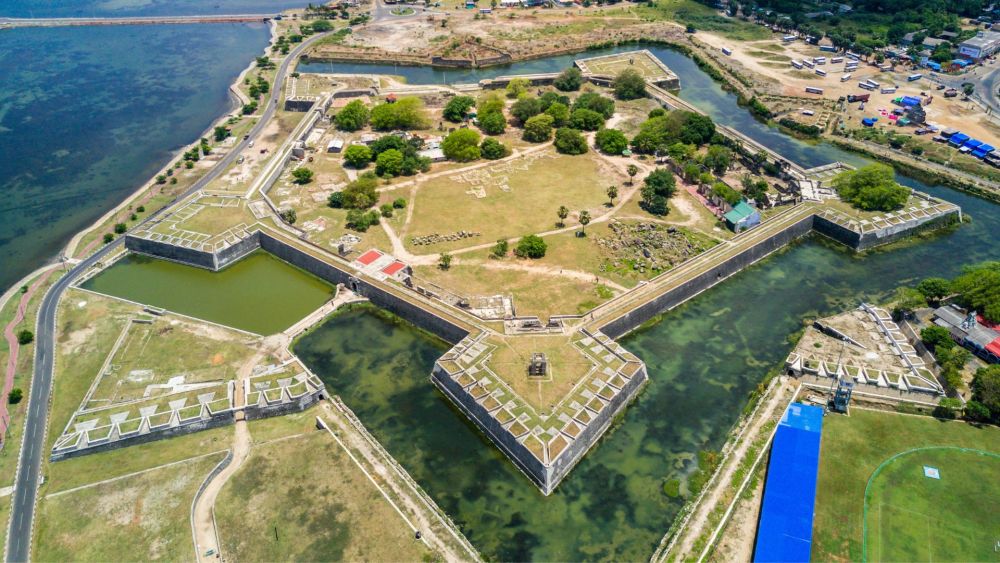

The Jaffna Fort, located on the Jaffna Peninsula in the northern region of Sri Lanka, is a historic fortification with a rich colonial legacy. Its origins date back to the Portuguese colonial period in the 17th century when it was constructed in 1618. Later, it was taken over by the Dutch, and finally, the British before Sri Lanka gained independence. Each colonial power expanded and reinforced the fort, leaving behind a blend of architectural styles and military history.
Tourism to the Jaffna Fort has ebbed and flowed with the region's tumultuous history, especially during the Sri Lankan Civil War which caused significant damage to the structure and hindered tourism development. Post-war reconstruction efforts in the late-20th and early-21st centuries have sought to restore the fort to its former glory, turning it once again into a significant historical and cultural attraction.
In recent years, the Jaffna Fort has experienced a revival as a tourist destination, bolstered by the overall peace in the country and growing interest in Sri Lanka's northern regions. Reconstruction has made key areas of the fort accessible, and the site now features informative signs detailing its complex past. The fort's prime location overlooking the Jaffna lagoon enhances its appeal, offering scenic views to visitors and serving as a picturesque backdrop for cultural events and local festivals.
The latest trends in tourism within Jaffna, and to the Jaffna Fort in particular, reflect a broader shift toward cultural and sustainable tourism practices. Tourists are increasingly interested in immersive experiences that highlight the local Tamil culture, cuisine, and history. There is also a greater emphasis on community involvement and ensuring that tourism development benefits local populations.
Ecotourism developments in the nearby areas complement the historical allure of the Jaffna Fort. Tour operators are beginning to offer packages that combine visits to the fort with experiences such as bird watching in the Jaffna lagoon, bicycle tours around the peninsula, and participatory activities in local crafts and traditional cooking.
Furthermore, the push towards digitalization has seen an increase in online platforms promoting Jaffrica as a destination. Virtual tours, interactive websites, and enhanced online booking systems have made it easier for tourists to plan their visits and learn about the fort's significance before arriving.
As Jaffna continues to grow in popularity among domestic and international travelers, sustainable tourism initiatives aimed at preserving its unique heritage and promoting responsible travel will likely define the future of tourism in this storied region of Sri Landka.